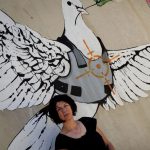On July 31, Israel assassinated Hezbollah’s top military commander, Fuad Shukr, in Beirut. Hezbollah promptly vowed to retaliate for his killing.
Hours later, the leader of Hamas’s political wing, Ismail Haniyeh, was assassinated in Tehran.
Although Israel did not acknowledge that it killed Haniyeh, that is the view of Iran’s government. Iran has promised severe retribution.
Waiting for retribution
So far, neither Hezbollah nor Iran has launched a major attack on Israel. Some Western media claim that the delay is due to the U.S. government’s ‘diplomatic efforts’.
Iranian officials, however, have made clear that only a ceasefire in Gaza would hold Iran back from direct retaliation.
A ceasefire in Gaza seems unlikely to occur any time soon. The most extreme members of Benjamin Netanyahu’s cabinet have left no doubt that they will bring Israel’s coalition government down if Netanyahu agrees to a ceasefire before Hamas is destroyed. At this time, there is no indication that Hamas is on the ropes.
Moreover, if Netanyahu agrees to a ceasefire to appease Iran, then Israel will look weak while Iran will look heroic. These optics virtually guarantee that the Netanyahu regime will not agree to a ceasefire.
Meanwhile, Israelis wait nervously for the response of Hezbollah and Iran. They wait and wait.
The ubiquitous Mohammad Marandi
On August 12, I spoke with Iranian Professor Mohammad Marandi about the form and timing of the coming retaliation.
We also discussed whether the U.S. might respond to Iran’s retaliatory strike(s) by attacking Iran directly. If that were to happen, Russia and China might somehow intervene.
Finally, we explored the damage that the conflict is inflicting upon Israel’s economy.
Since Israel’s genocide began, Marandi has emerged as a prominent Iranian voice in the English-language media. He has appeared on international news networks, including Sky News,,CNN, the BBC and Al Jazeera.
As Israel’s conflict with Iran has intensified, he has become almost ubiquitous in the English-language independent media.
The main reason for his growing prominence may well be that his background, qualifications and demeanour contradict Western stereotypes about the Iranian political establishment.
The soft-spoken professor was born in the United States. While Western media focus upon Iranians who abandon Iran and flee to the West, Marandi moved from the U.S. to Iran. His father, Alireza Marandi, served in Iran’s government as Minister of Health and was a Member of Iran’s Parliament.
After Marandi returned to Iran, he volunteered to fight for his country in the brutal Iran-Iraq war. He was wounded twice and survived two chemical weapons attacks. At the time, the U.S. knew that Saddam Hussein’s army was using chemical weapons – and helped Iraq anyways.
Later, Marandi served as a media adviser to the Iranian nuclear negotiations team in Vienna. He subsequently became head of the North American Studies program at the University of Tehran and is currently a professor of English Literature and Orientalism at the university.
You can watch and listen to my discussion with Professor Marandi here:





